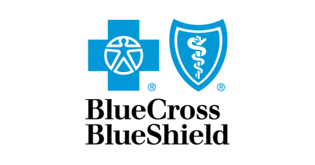High-Quality Autism Evaluations From a Pediatric Psychologist — Without The Wait
Immediate Access to Autism Evaluations and Services in Illinois
Whether you’re seeking answers for the first time or need a diagnosis to begin ABA therapy, we’re here to help.
Many families reach out to us after hearing:
“The earliest appointment is in six to nine months.”
“You’ll need a diagnosis before you can start.”
“Here’s a list of providers—good luck.”
At The Place, our team—many of whom are parents who’ve been through this process—understand how heavy this moment can feel and how important it is to have guidance, not just answers.
The Autism Evaluation Center at The Place exists to help families move through this step with clear support, thoughtful care, and fewer delays.
Your Diagnostic Journey, Finally Simplified
You’ll never navigate this process alone—our team partners with your family from start to finish.
Seamless Path From Evaluation to ABA
Families don’t have to bounce between providers or repeat steps. We guide you forward, one step at a time, with continuity and care.
We Take Care of the Details
Insurance questions, scheduling, paperwork—our team helps manage the process so you can focus on your child, not on tracking down information or coordinating appointments.
Guided by One Supportive Team
From your first call through evaluation and next steps, one connected team walks alongside your family, so you always know who to contact and what comes next.
No long waitlists. No starting over after a diagnosis. No confusion about next steps.
Our Easy, 3-Step Path Forward
Connect with Our Team
Reach out by phone or form. We verify insurance, answer questions, and guide you through a brief screening to determine next steps.
Complete the Evaluation
Your child participates in a play-based assessment, paired with a parent interview, led by our licensed diagnostician.
Start Support Without Delay
You receive clear results and guidance. Our team works together to help your child begin ABA therapy as soon as possible.
Meet Your Trusted Diagnostician
Margaret Christie, Ph.D., LCP
“I love being able to provide clarity, answers, and next steps to families during the diagnostic process. Although evaluations are brief and time-limited, it’s still amazing to make connections with clients—and difficult to have to say goodbye once testing is complete.”
Margaret is a Chicagoland native with five years of experience as a licensed clinical pediatric psychologist and diagnostician. Her warm, thoughtful approach reflects the commitment of our entire team: to make sure you have someone in your corner who’s here for you and your child every step of the way.

Accepted Insurance
Not sure if you’re covered? We take care of it for you.
Our team handles the paperwork and confirms insurance once, carrying it through from evaluation to therapy so there’s no restarting or delays later.
Please note that we cannot accept Medicaid or out-of-network private insurance.








What to Expect: An Autism Evaluation Designed for Families
Start With a Quick Autism Screening
The first step is completing a short online screening. This allows our team to review your child’s information and quickly guide you toward the next step with confidence.
M-CHAT: For children ages 16 months – 3 years
Questionnaire consisting of 20 yes/no questions that parents answer regarding everyday behaviors at home.
Complete the M-CHAT »
CAST: For children ages 4–11
Questionnaire with 39 yes/no questions about your child’s communication, social interaction, play, and behavior.
Complete the CAST »
Next Steps
Results Reviewed at No Cost
We determine the appropriate next step—whether that’s monitoring, additional supports, or moving forward with a full evaluation.
Insurance Handled for You
If a full evaluation is recommended, we verify insurance, review coverage, and begin next steps.
Evaluation Booked Without Delay
Families are scheduled as soon as possible through the Autism Evaluation Center at The Place.
Virtual Parent Interview
From the comfort of your home, you’ll talk with our diagnostician about your child’s strengths, challenges, and daily experiences.
Child Observation
Your child will participate in a gentle, play-based in-person assessment so our diagnostician can observe their communication, social engagement, and developmental skills.
What Families Can Expect
A Thoughtful Approach
We take a gentle, play-based approach so children can show their skills in a natural, comfortable way during evaluation.
Timely & Efficient
Designed to be completed within one week, we help you get answers and move forward without delays.
Gold-Standard Tools
We use research-backed tools such as the ADOS-2 (Autism Diagnostic Observation Schedule) to ensure accurate results.
Clear Results and a Path Forward
After the evaluation, you’ll meet with our diagnostician for a warm feedback session. We’ll ensure that you understand the results, what they mean for your child, and that all your questions are fully answered as we begin the next chapter.
Support Starts Right Away
We’re With You in This Moment: There’s often a lot to take in at this stage. We’re here to listen, talk things through, and help you feel steady as you consider next steps.
ABA Begins Without Delay: Your child can begin ABA therapy at The Place right away—without additional referrals, repeated paperwork, or waiting.
We Build a Plan Around Your Child: You’ll meet your child’s care team, set meaningful goals together, and begin therapy focused on helping your child grow and build skills, supported by people dedicated to your child’s growth.
Ready to Take the Next Step?
If you’re wondering what to do next or need help getting started, reach out to our team. We’ll answer your questions, walk you through options, and help you take the next step at your pace.
Get Started
FAQs
When is an autism diagnosis needed?
A diagnosis is needed to access certain services, including ABA therapy, and helps ensure your child receives the right supports. It also provides clarity on how your child learns, communicates, and engages with the world.
How is autism diagnosed?
Clinicians use standardized tools, observations, parent interviews, and developmental history to understand your child’s strengths and needs. At The Place, this includes tools like the ADOS-2 and rating scales from caregivers—and sometimes teachers, if your child is in school.
Does The Place accept insurance for diagnostic services?
Yes! Most families use insurance for evaluations. We will verify your benefits, walk you through coverage, and help you understand any costs.
Do I need a referral from my pediatrician?
In most cases, no referral is needed to begin the autism evaluation process with us. Families can reach out directly to our team to start with a screening and next steps.
If a referral is required by your insurance plan, we’ll let you know and help guide you through getting what’s needed. Our team works closely with families and providers to make the process as smooth as possible.
Who can diagnose autism in children?
Autism can be diagnosed by qualified clinicians such as psychologists, developmental pediatricians, neurologists, or trained diagnosticians with expertise in autism assessments. At The Place, your child will see a licensed diagnostician experienced in early childhood autism evaluations.
How soon will I know the results of my child's evaluation?
You’ll receive results during your feedback appointment, which occurs after the in-person assessment.
What should I do if my child is diagnosed with autism?
You’re not alone. A diagnosis opens the door to support, services, and a clear path forward. Our team will guide you through next steps, answer your questions, and help you understand therapy options—including beginning ABA services with us.
How do I schedule an appointment for my child at The Place?
You can schedule an evaluation by calling our team, submitting an inquiry on our website, or speaking directly with our Outreach Department. We’ll help you every step of the way.
What should I do to prepare for my child's assessment?
We’ll send you any required paperwork ahead of time, and you can complete it online. If it’s not submitted yet, our diagnostician can assist during your appointment. Bring anything that helps your child feel comfortable (favorite toy, snack, or comfort item).



